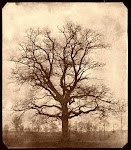A victualler is traditionally person who sells food or other provisions; a purveyor of spirits; innkeeper. A licensed victualler refers to a the landlord of a public house or similar licensed establishment.
Chiefly in British reference as shown below for our English ancestor William Dean: an innkeeper
Conveyance (lease and release) for £100 - 10 and 11 Mar 1775:
Richard Sharpe of Stone in Oxney Kent yeoman (only son of TS in AMS5834/10-12) to William Dean of Appledore Kent victualler as AMS5834/8 now in 2 dwellings, late occupied by William Noakes, now William Collins and John Kesford Bounds as AMS5834/8 except E: John Smith; S: James Lamb; dower of Ann Richard Dean widow of TS, now wife of WD excepted
W: H Waterman, John Woollett
Showing posts with label Appledore. Show all posts
Showing posts with label Appledore. Show all posts
Sunday, March 28, 2010
Friday, May 8, 2009
Cause of Death: Phthisis
Harriet Dean, born 12 July 1806 in Appledore, England;
daughter of James Dean & Sarah Hinty.
Married Odian Cassingham on 25 April 1839 in Tenterden, Kent, England.
Died 7 July 1860 in Ashford, Kent, England.
Cause of death: phthisis.
......
Phthisis: Greek word meaning "a dwindling or wasting away"
(Pronounced TIE-sis): A wasting or consumption of the tissues. 
The term was formerly applied to many wasting diseases, but is now usually restricted to pulmonary phthisis or consumption. In 460 BC Hippocrates identified phthisis as the most widespread disease of his day and observed that it was almost always fatal.

The term was formerly applied to many wasting diseases, but is now usually restricted to pulmonary phthisis or consumption. In 460 BC Hippocrates identified phthisis as the most widespread disease of his day and observed that it was almost always fatal.
Phthisis and consumption are archaic names for tuberculosis (TB). A person afflicted with tuberculosis in the old days was destined to dwindle and waste away like the heroine of Puccini's 1896 opera "La Boheme." In other words, the afflicted appeared to be consumed by the disease.
Other old TB terms include the King's evil or scrofula (TB of the lymph nodes in the neck) and Pott's disease (TB of the spine).
Other old TB terms include the King's evil or scrofula (TB of the lymph nodes in the neck) and Pott's disease (TB of the spine).
First isolated in 1882 by the German physician, Robert Koch, TB is an infectious disease caused by the bacteria Mycobacterium tuberculosis. Still present in today’s society, tuberculosis can usually be treated successfully with antibiotics.
Subscribe to:
Posts (Atom)


















